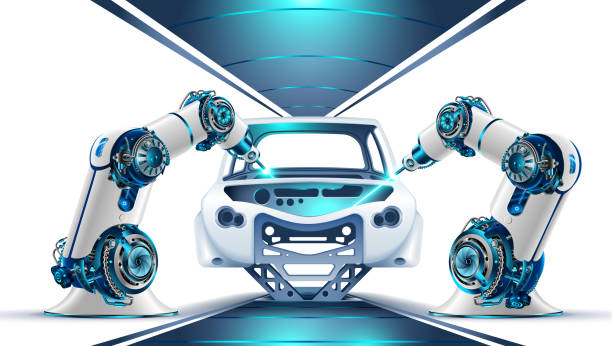Artificial Intelligence (AI) is revolutionizing the field of robotics, making machines more intelligent, adaptable, and capable of functioning with minimal human intervention. Gone are the days when robots were limited to performing repetitive, pre-programmed tasks. Today, AI-powered robots are learning, reasoning, and making decisions on their own, enhancing industries from healthcare to manufacturing and beyond. This article explores how AI is making robots smarter and more autonomous, paving the way for a future where intelligent machines work alongside humans in various aspects of life.
The Role of AI in Robotics
Traditional robots followed a strict set of instructions, requiring human supervision for any deviations from their programmed tasks. However, with AI, robots can analyze their surroundings, learn from experiences, and adapt to new challenges. By integrating technologies such as machine learning, deep learning, and computer vision, AI enables robots to understand complex environments and make decisions without constant human input.
Key AI Technologies Enhancing Robotics
1. Machine Learning and Deep Learning
Machine learning allows robots to improve their performance over time by recognizing patterns in data. With deep learning, robots can process vast amounts of information, enabling them to recognize objects, detect obstacles, and predict outcomes. This capability is essential for applications like self-driving cars, automated warehouses, and robotic assistants.
2. Computer Vision and Image Recognition
AI-powered computer vision enables robots to “see” and understand their surroundings. Using cameras and sensors, robots can identify objects, navigate spaces, and even recognize human emotions. This technology is crucial for robots used in security surveillance, medical diagnostics, and industrial automation.
3. Natural Language Processing (NLP)
NLP allows robots to understand and respond to human speech. AI-driven chatbots, virtual assistants, and humanoid robots can engage in conversations, process commands, and provide customer support. This advancement is making robots more interactive and user-friendly in homes, businesses, and healthcare facilities.
4. Reinforcement Learning for Autonomous Decision-Making
Reinforcement learning enables robots to learn from trial and error. By receiving rewards or penalties for their actions, robots refine their decision-making abilities. This technique is widely used in robotics for applications such as self-driving cars, robotic arms in manufacturing, and AI-powered game characters.
Industries Benefiting from AI-Powered Robots
1. Healthcare and Medicine
AI-powered robots assist in surgeries, diagnose diseases, and provide rehabilitation therapy. Surgical robots enhance precision, while robotic assistants help elderly and disabled individuals with daily tasks, improving healthcare outcomes.
2. Autonomous Vehicles and Transportation
Self-driving cars use AI to analyze road conditions, detect obstacles, and navigate traffic. Companies like Tesla and Waymo are at the forefront of developing autonomous transportation solutions that aim to reduce accidents and improve efficiency.
3. Manufacturing and Industrial Automation
AI-driven robots in manufacturing streamline production lines, conduct quality control, and perform predictive maintenance. These robots increase productivity while reducing human errors and operational costs.
4. Smart Homes and Personal Assistants
AI-powered home robots, such as vacuum cleaners, security bots, and voice assistants, are making everyday life more convenient. Devices like Amazon Alexa and Google Assistant use AI to perform household tasks and assist users efficiently.
5. Agriculture and Smart Farming
AI robotics in agriculture automate tasks like planting, watering, and harvesting. Drones equipped with AI analyze crop health, optimize irrigation, and enhance yield prediction, helping farmers increase productivity while reducing waste.
The Future of AI-Powered Autonomous Robots
As AI continues to advance, robots will become even more intelligent and capable of handling increasingly complex tasks. The integration of AI with technologies like 5G, the Internet of Things (IoT), and quantum computing will further enhance their abilities. However, challenges such as ethical concerns, data security, and job displacement must be addressed to ensure responsible AI development.
AI-powered robots are undoubtedly shaping the future, making automation smarter, safer, and more efficient. With continued research and innovation, robots will not only assist humans but also collaborate with them to create a more advanced and interconnected world.

